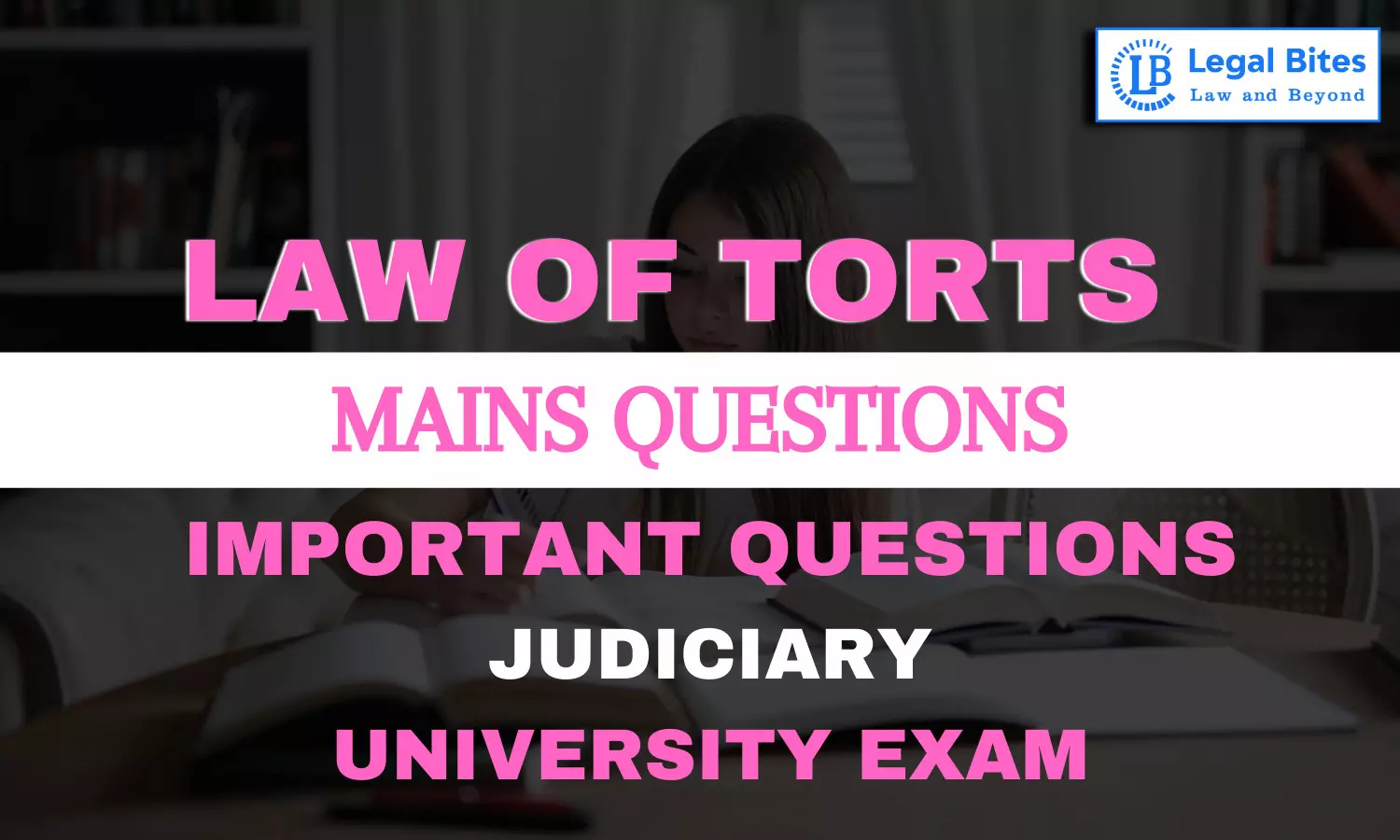W a workman in a factory was returning home on his bicycle in the night when he rode over a live wire because of which he was electrocuted to death. The widow of 'W'brought an action for damages against the State Electricity Board ........"an act of stranger".
Find the question and answer of Law of Torts only on Legal Bites.

Question: W a workman in a factory was returning home on his bicycle in the night when he rode over a live wire because of which he was electrocuted to death. The widow of 'W'brought an action for damages against the State Electricity Board claiming that the Board could not escape from its liability to pay damages as this was a case of strict liability. It was contended by the State Electricity Board that one person 'C' had taken a wire from the main supply line in order to siphon the...
Question: W a workman in a factory was returning home on his bicycle in the night when he rode over a live wire because of which he was electrocuted to death. The widow of 'W'brought an action for damages against the State Electricity Board claiming that the Board could not escape from its liability to pay damages as this was a case of strict liability.
It was contended by the State Electricity Board that one person 'C' had taken a wire from the main supply line in order to siphon the energy for his own use and the said act was done without notice of the Board and that the line got unfastened from the hook and fell on the road over which the deceased rode the bicycle, accordingly liability could not be fastened on the State Electricity Board as the reason for the unfortunate incident was "an act of stranger"
Find the question and answer of Law of Torts only on Legal Bites. [W a workman in a factory was returning home on his bicycle in the night when he rode over a live wire because of which he was electrocuted to death. The widow of 'W'brought an action for damages against the State Electricity Board claiming that the Board could not escape from its liability to pay damages as this was a case of strict liability..........as the reason for the unfortunate incident was "an act of stranger"]
Answer
In this case, the widow of 'W' brought an action for damages against the State Electricity Board claiming that the Board was strictly liable for her husband's death due to electrocution caused by a live wire. The State Electricity Board contended that the wire had been taken by an unauthorized person 'C' from the main supply line without the knowledge of the Board and had fallen on the road, and hence, the Board could not be held liable as the cause of the incident was an act of a stranger.
The Principle of strict liability means that liability is imposed without proof of fault or negligence. It is a principle that is often applied in cases where inherently dangerous activities or substances are involved. In this case, the issue is whether the State Electricity Board can be held strictly liable for the death of 'W' due to the live wire that caused his electrocution.
The Supreme Court of India in the case of M.C. Mehta v. Union of India, (1987) 1 SCC 395, held that the State Electricity Board could be held strictly liable for the death of a person caused by an electrical wire if it is proved that the Board had failed to take adequate safety measures to prevent such incidents from occurring. The Court observed that electricity is a dangerous substance, and the Board has a duty to take all necessary precautions to prevent any harm to the public.
In the present case, it can be argued that the State Electricity Board had a duty to take adequate safety measures to prevent unauthorized persons from taking wires from the main supply line and causing harm to the public. The fact that an unauthorized person had taken the wire and caused it to fall on the road does not absolve the Board from its duty to take adequate safety measures to prevent such incidents.
Therefore, based on the above-mentioned principle and the judgment of the Supreme Court in M.C. Mehta v. Union of India, it can be argued that the State Electricity Board can be held strictly liable for the death of 'W' due to the live wire that caused his electrocution if it is proved that the Board had failed to take adequate safety measures to prevent such incidents from occurring. The fact that the cause of the incident was an act of a stranger does not absolve the Board from its duty to take adequate safety measures to prevent such incidents.

Mayank Shekhar
Mayank is an alumnus of the prestigious Faculty of Law, Delhi University. Under his leadership, Legal Bites has been researching and developing resources through blogging, educational resources, competitions, and seminars.
